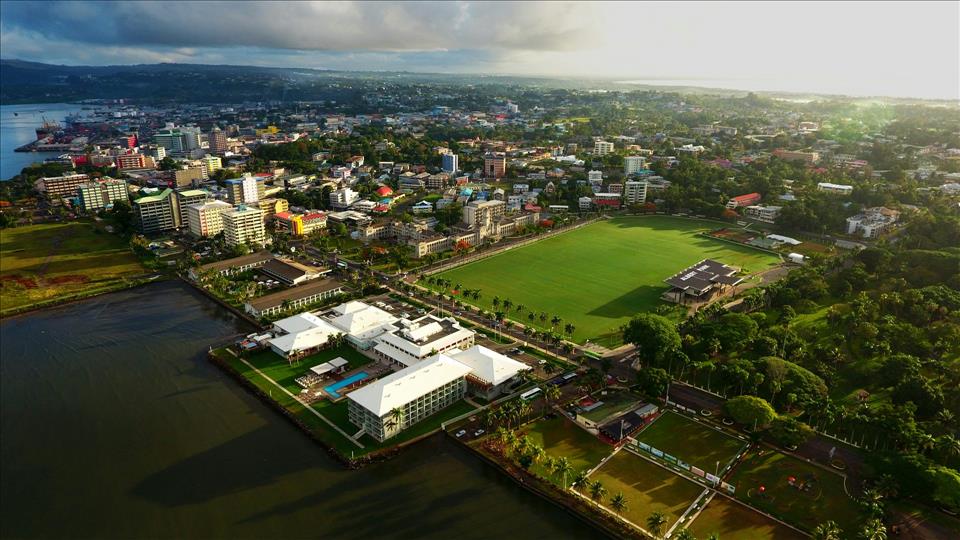
Meth Addiction, HIV And A Struggling Health System Are Causing A Perfect Storm In Fiji
Driven by foreign drug cartels using Fiji as a staging post for operations in New Zealand and Australia, the drug has also spread into local communities. In turn, it has fuelled a surge in HIV infections and put extra burdens on stretched health and justice sectors.
Known locally as“ice”, methamphetamine (meth) is highly addictive, widely available and increasingly linked to risky behaviour. Needle sharing,“chemsex” (using drugs to heighten sexual experiences) and a practice known as“bluetoothing” – withdrawing blood after a drug hit and injecting it into a second person – have all been implicated in declining health indicators.
With children as young as nine being treated for addiction, and with crime statistics and reported HIV and AIDS cases climbing dramatically , police have called for a state of emergency to tackle the interrelated problems. But the police themselves have been accused of corruption in relation to meth dealing.
Drugs, health and crimeHIV cases are expected to double this year , with young people and marginalised communities disproportionately affected.
The intersection of meth use and HIV is particularly troubling. Methamphetamine weakens the immune system, making users more susceptible to infections. Compounding the problem, the stigma and discrimination associated with both meth use and HIV mean many are reluctant to seek help or undergo testing.
Exacerbating the twin crises is the dire state of Fiji's health facilities after years of neglect. Hospitals and clinics have been underfunded, lack modern equipment, and are short-staffed due to an exodus of health professionals .
These deficiencies have serious implications for patient care. And they limit the health system's ability to respond to rising demand for a complex array of services.
Healthcare infrastructure is particularly lacking for drug rehabilitation, psychiatric care, and management of the non-communicable diseases that cause an estimated 80% of premature deaths in Fiji.
A national crisisThe interplay between methamphetamine use, HIV and ill-equipped health facilities creates a vicious cycle that perpetuates and exacerbates each individual issue.
Meth use increases crime, addiction and the risk of HIV transmission, particularly among young people. In turn, this places more strain on the already struggling healthcare system, as well as police and legal resources.
Overall, the situation is leading to a further decline in Fiji's national development outcomes. Addressing these multiple threats will require a holistic and coordinated response.
With the involvement of the United Nations' AIDS programme, UNAIDS, there are plans to develop such strategies with government, civil society, regional and international partners.
And in April this year, a Pacific Regional Transnational Crime Disruption Strategy was launched. Interpol's Project Blue Pacific is supported by the Australian Federal Police, New Zealand Police and and the UK National Crime Agency. New Zealand also helped fund the establishment in July of a Fijian Counter Narcotics Bureau.
No quick or easy fixBut while such partnerships are vital for combating the supply of meth and other drugs, they fall short of connecting transnational drug crime with the domestic problems it causes.
New Zealand has pledged ongoing funding support for health infrastructure improvements. The Fiji government's budgetary priorities will also have to include upgrading medical facilities and equipment, and expanding training for healthcare professionals.
Developing and implementing comprehensive prevention and treatment programmes for meth addiction and HIV are equally crucial. These should include widespread education campaigns, harm reduction strategies (such as needle exchange programmes), and accessible testing and treatment services.
Empowering local communities to participate will lead to more sustainable and culturally appropriate solutions. Reducing the stigma and discrimination around meth use and HIV will be crucial.
Finally, collaboration with regional and global health organisations will provide much-needed technical and financial support. Other Pacific nations will be looking to Fiji to take a lead and prevent the crisis spreading.

Legal Disclaimer:
MENAFN provides the
information “as is” without warranty of any kind. We do not accept
any responsibility or liability for the accuracy, content, images,
videos, licenses, completeness, legality, or reliability of the information
contained in this article. If you have any complaints or copyright
issues related to this article, kindly contact the provider above.


















Comments
No comment